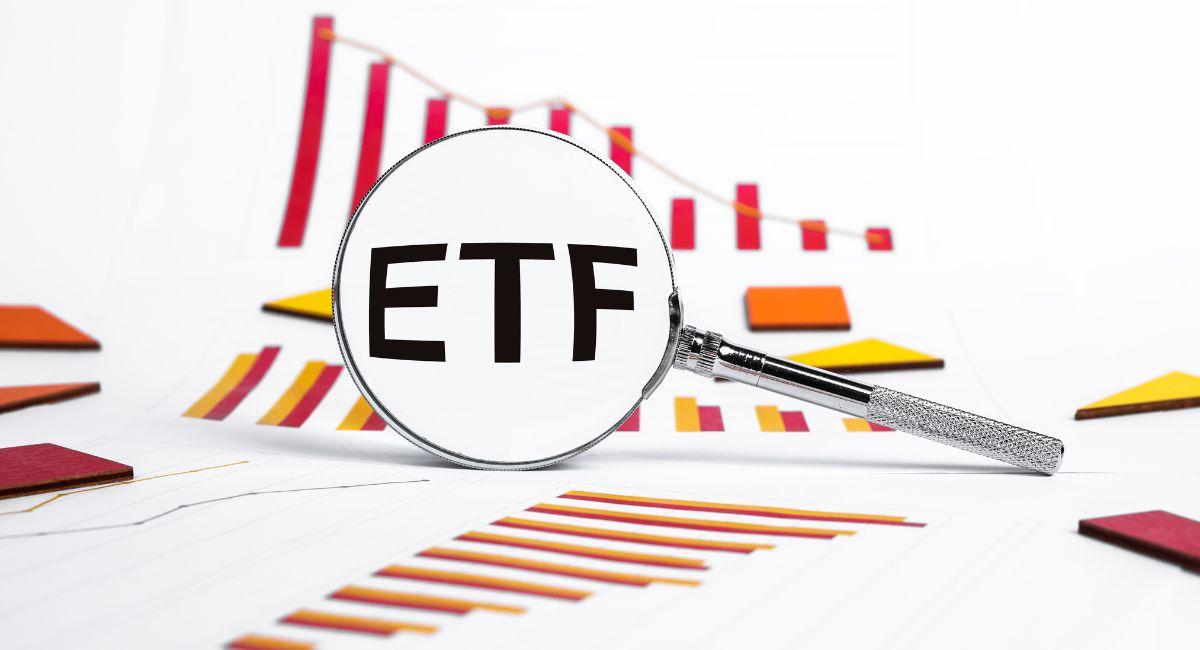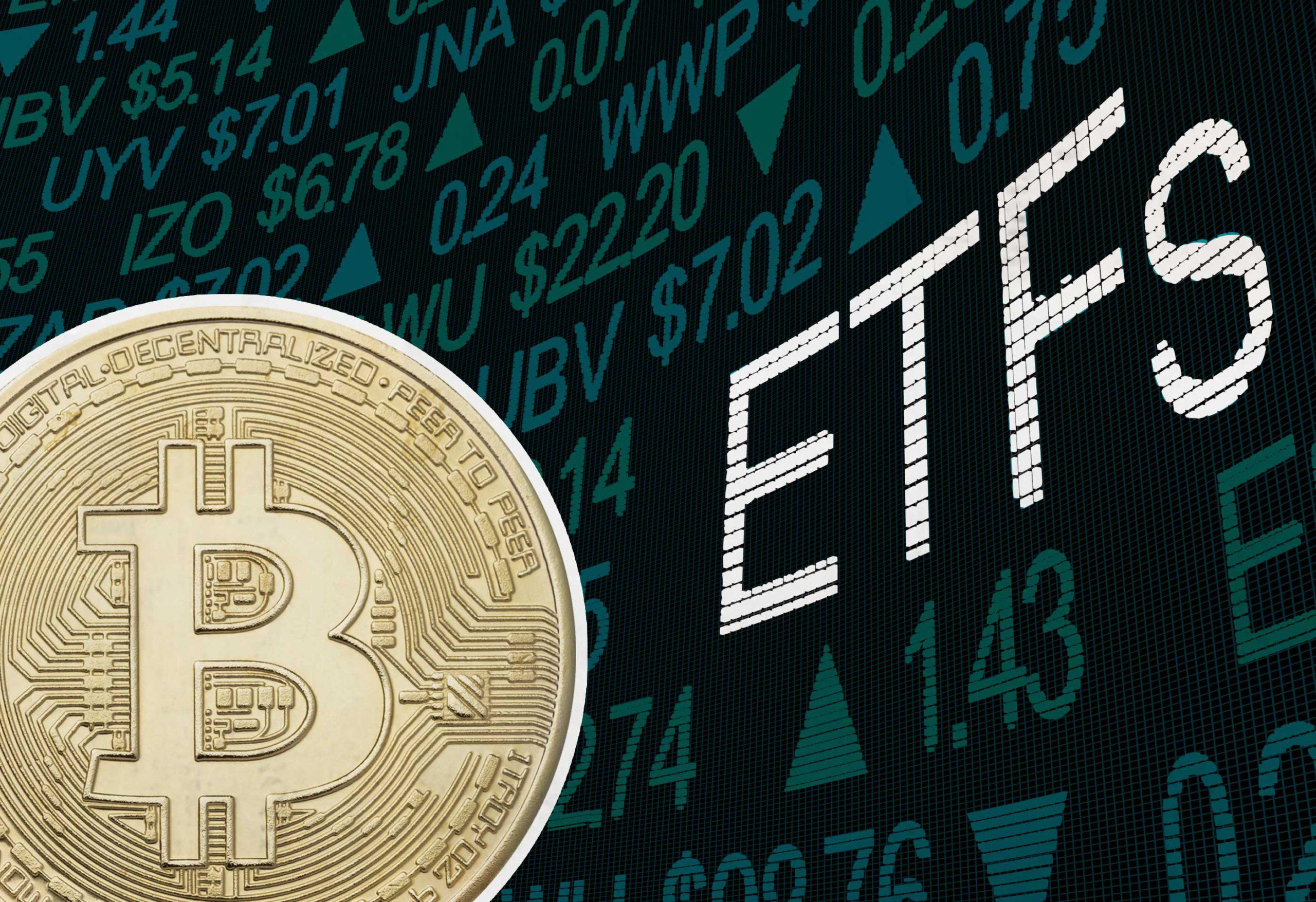January 12, 2024 by Diana Ambolis
586
A Bitcoin ETF (Exchange-Traded Fund) is a financial product that tracks the price of Bitcoin, allowing investors to gain exposure to Bitcoin’s price movements without actually owning the cryptocurrency itself. ETFs are investment funds traded on stock exchanges, and they aim to mimic the performance of an underlying asset or a group of assets. A
A Bitcoin ETF (Exchange-Traded Fund) is a financial product that tracks the price of Bitcoin, allowing investors to gain exposure to Bitcoin’s price movements without actually owning the cryptocurrency itself. ETFs are investment funds traded on stock exchanges, and they aim to mimic the performance of an underlying asset or a group of assets.
A Bitcoin ETF operates by holding Bitcoin as part of its fund assets, and the value of the ETF shares is generally designed to reflect the price of Bitcoin. Investors can buy and sell shares of the ETF on traditional stock exchanges, providing a way to invest in Bitcoin through traditional brokerage accounts.
The concept of a Bitcoin ETF has been a topic of interest in the financial markets as it could potentially make it easier for institutional and retail investors to invest in Bitcoin without directly dealing with the complexities of acquiring and storing the cryptocurrency. As of my last knowledge update in January 2022, several proposals for a Bitcoin ETF had been submitted to regulatory authorities in various countries, but approval and launch of such ETFs had not been universal.
It’s important to note that the status of Bitcoin ETFs may change over time, and regulatory approval in different jurisdictions can vary. Therefore, for the most up-to-date information on Bitcoin ETFs, it is recommended to check with financial news sources or consult with financial professionals.
Bitcoin Exchange-Traded Funds (ETFs) have garnered significant attention in the financial world, but their influence extends beyond the realm of Bitcoin. In this analysis, we examine how the introduction and performance of Bitcoin ETFs can impact the Ethereum ecosystem.
How the introduction and performance of Bitcoin ETFs can impact the Ethereum ecosystem?

1. Market Sentiment and Cryptocurrency Perception
The approval and launch of Bitcoin ETFs can influence overall market sentiment towards cryptocurrencies. Positive developments in the Bitcoin market often spill over into the broader crypto space, potentially boosting confidence in alternative cryptocurrencies like Ethereum. As investors gain more trust in crypto as an asset class, Ethereum may benefit from a favorable perception.
2. Increased Institutional Interest
Bitcoin ETFs provide a regulated and familiar investment vehicle for institutional investors. As institutions dip their toes into the crypto market through Bitcoin ETFs, there’s a likelihood of increased curiosity and exploration of other prominent cryptocurrencies, including Ethereum. This heightened institutional interest could lead to increased adoption and investment in the Ethereum ecosystem.
3. Price Correlation Dynamics
Historically, Bitcoin and Ethereum have exhibited a degree of price correlation. While they are distinct cryptocurrencies with different use cases, positive movements in Bitcoin prices can create a positive environment for Ethereum and vice versa. Bitcoin ETFs, by influencing Bitcoin prices, may indirectly impact Ethereum prices, creating a correlated market dynamic.
4. Development of Crypto Derivatives Markets
The introduction of Bitcoin ETFs could contribute to the growth of cryptocurrency derivatives markets. As more financial instruments related to cryptocurrencies become available, there could be a spillover effect on Ethereum derivatives. Traders and investors may diversify their portfolios by engaging in Ethereum-related derivatives, leading to increased liquidity and market activity.
5. Broader Regulatory Developments
The regulatory landscape for Bitcoin ETFs involves close scrutiny from financial authorities. Positive regulatory developments in the context of Bitcoin ETFs could set a precedent for the regulatory treatment of other cryptocurrencies, including Ethereum. Clarity and acceptance in the regulatory sphere may encourage broader institutional participation in the Ethereum ecosystem.
6. Technological Synergies
While Bitcoin and Ethereum operate on different technological frameworks, advancements in the broader blockchain and cryptocurrency space can benefit both ecosystems. Increased attention and investment resulting from Bitcoin ETFs may drive technological innovations that could positively impact Ethereum’s development and scalability solutions.
Also, read- The Complex World Of Bitcoin CME Gaps And Its Top 10 Trading Strategies
What happens if Bitcoin ETF is approved?
If a Bitcoin Exchange-Traded Fund (ETF) is approved, it can have several implications for the cryptocurrency market and investment landscape. Here are some potential outcomes:
- Increased Accessibility for Investors:
- Approval of a Bitcoin ETF would make it easier for both institutional and retail investors to gain exposure to Bitcoin without directly owning the cryptocurrency. Investors can buy and sell shares of the ETF on traditional stock exchanges, using traditional brokerage accounts.
- Potential Price Impact:
- The introduction of a Bitcoin ETF could potentially attract new investors to the market, leading to increased demand for Bitcoin. This surge in demand could contribute to upward pressure on Bitcoin’s price.
- Institutional Participation:
- Institutional investors, such as mutual funds, pension funds, and other large financial institutions, may find it more feasible and convenient to include Bitcoin in their portfolios through ETFs. This could lead to increased institutional participation in the cryptocurrency market.
- Market Liquidity:
- The trading of Bitcoin ETF shares on traditional stock exchanges could enhance market liquidity. Investors could buy and sell these shares throughout the trading day, potentially providing more flexibility than direct ownership of Bitcoin.
- Regulatory Oversight:
- A Bitcoin ETF typically operates under regulatory oversight and compliance, which can provide a level of investor protection. The approval process involves scrutiny by regulatory authorities to ensure that the ETF meets certain standards and adheres to regulations.
- Mainstream Acceptance:
- The approval of a Bitcoin ETF could be viewed as a step toward mainstream acceptance of cryptocurrencies. It might contribute to legitimizing Bitcoin as an investable asset class and encourage further regulatory clarity in the cryptocurrency space.
- Market Growth and Maturation:
- A Bitcoin ETF could be seen as a sign of the maturation of the cryptocurrency market. It might attract more traditional investors who were previously hesitant to enter the market due to concerns about security, custody, and regulatory uncertainties.
- Increased Competition:
- The approval of one Bitcoin ETF may pave the way for additional ETFs and other financial products tied to cryptocurrencies. Increased competition among these products could drive innovation and provide investors with more choices.
It’s important to note that while the potential approval of a Bitcoin ETF has generated significant interest and speculation, the actual impact on the market will depend on various factors, including market conditions, investor sentiment, and regulatory developments. Additionally, the regulatory landscape for Bitcoin ETFs can differ across jurisdictions, so the impact may vary depending on the region.
Does Ethereum price depend on bitcoin?
Yes, there is a historical correlation between the prices of Ethereum (ETH) and Bitcoin (BTC), meaning that the value of Ethereum often shows some degree of dependence on the price movements of Bitcoin. This relationship is particularly evident in the cryptocurrency market, where Bitcoin is often considered a benchmark or “digital gold,” and many other cryptocurrencies, including Ethereum, are influenced by its performance. Here are some reasons why Ethereum’s price can be influenced by Bitcoin:
- Market Sentiment and Perception:
- Investors and traders in the cryptocurrency market often view Bitcoin as a leading indicator of market sentiment. Positive or negative movements in the price of Bitcoin can set the tone for the broader market, influencing how investors perceive the overall health of the cryptocurrency ecosystem.
- Cryptocurrency Trading Pairs:
- Many cryptocurrency exchanges quote the prices of altcoins, including Ethereum, in terms of Bitcoin. Traders may use Bitcoin as a base currency for trading, and movements in Bitcoin’s price can affect the relative value of altcoins like Ethereum in Bitcoin terms.
- Market Dominance and Influence:
- Bitcoin has historically held a dominant position in the cryptocurrency market, both in terms of market capitalization and influence. As a result, significant price movements in Bitcoin can have a cascading effect on other cryptocurrencies, including Ethereum.
- Overall Market Dynamics:
- Cryptocurrency markets are interconnected, and large-scale market movements or trends can impact multiple cryptocurrencies simultaneously. Bitcoin’s price movements may trigger a broader market response, influencing Ethereum and other altcoins.
- Liquidity and Trading Volumes:
- Bitcoin generally exhibits higher liquidity and trading volumes compared to most other cryptocurrencies. Traders and investors may use Bitcoin as a gateway to enter or exit the cryptocurrency market, affecting the overall trading volumes and liquidity of Ethereum.
- Macro Factors and External Influences:
- External factors, such as regulatory developments, macroeconomic trends, and institutional interest, can affect both Bitcoin and Ethereum. Common external factors may contribute to a shared response in the prices of these major cryptocurrencies.
It’s important to note that while there is a historical correlation, the cryptocurrency market is dynamic, and the relationships between different assets can evolve over time. The degree of correlation between Ethereum and Bitcoin may vary in different market conditions, and individual factors specific to each cryptocurrency can also influence their prices independently. Traders and investors should consider various factors and conduct thorough analysis when making investment decisions in the cryptocurrency market.
Will bitcoin ETFs hold Ethereum?
Bitcoin ETFs (Exchange-Traded Funds) are designed to track the price movements of Bitcoin (BTC) and provide investors with exposure to Bitcoin without owning the actual cryptocurrency. As of my last knowledge update in January 2022, traditional Bitcoin ETFs do not hold Ethereum or any other cryptocurrencies in their portfolios. Bitcoin ETFs are typically structured to hold physical Bitcoin or derivatives tied to the price of Bitcoin.
If investors are specifically interested in gaining exposure to Ethereum, they would need to look for products or investment vehicles that are specifically designed to track the performance of Ethereum. These could include Ethereum-focused ETFs, ETPs (Exchange-Traded Products), or other investment instruments tied to the price of Ethereum.
It’s worth noting that the regulatory landscape and financial product offerings in the cryptocurrency space can evolve. Therefore, it’s recommended to check with financial regulatory authorities and stay updated on the latest developments to determine the availability of specific investment products, including those related to Ethereum, in your jurisdiction.
Keep in mind that information regarding financial products, regulations, and market offerings may have changed since my last update, so it’s advisable to verify the current status from reliable financial sources or consult with financial professionals.
Conclusion
In conclusion, the introduction and performance of Bitcoin ETFs possess a ripple effect that extends into the Ethereum world. From influencing market sentiment and institutional interest to impacting price correlation dynamics and regulatory developments, the interconnected nature of the cryptocurrency space means that developments in one major cryptocurrency can reverberate throughout the ecosystem. As Bitcoin ETFs continue to evolve, their impact on Ethereum and the broader crypto landscape remains an evolving and dynamic aspect of the cryptocurrency market.

































































